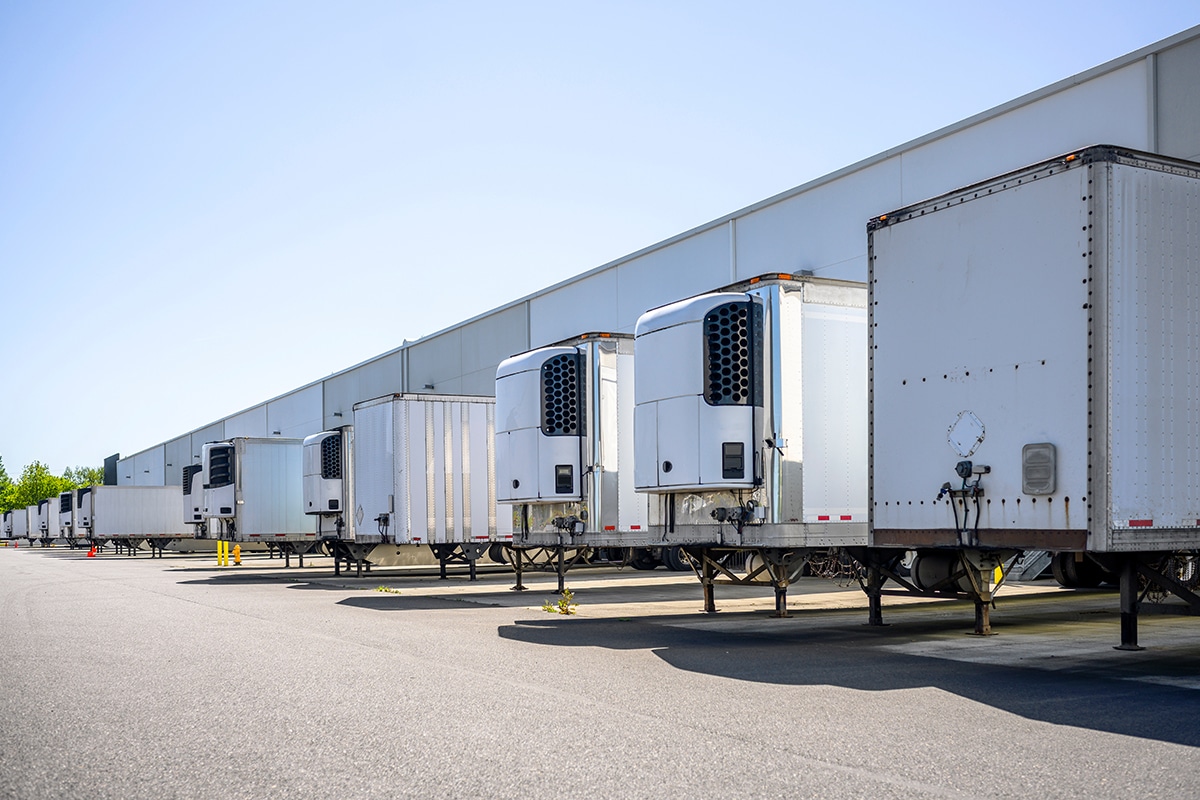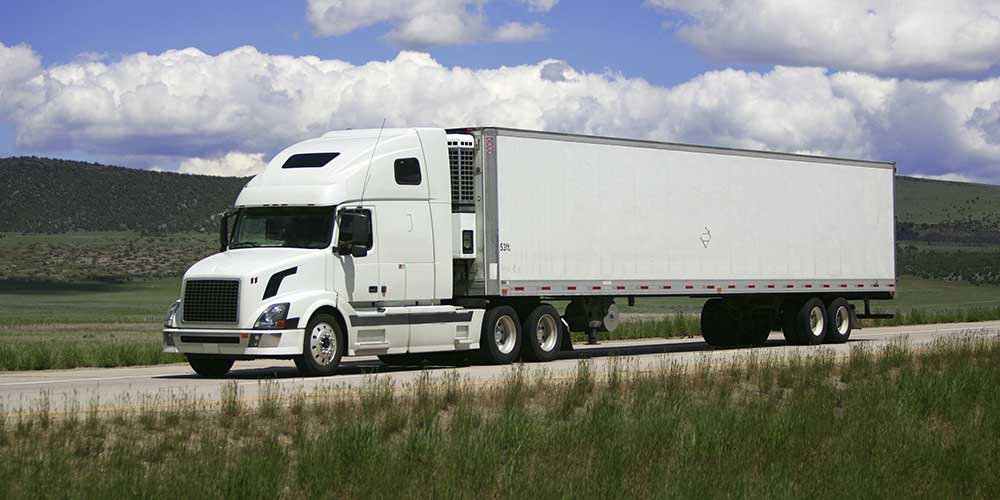Choosing the Right Transport Refrigeration System for Your Fleet
Choosing an ideal transport refrigeration system for your fleet is a vital choice that can dramatically affect operational effectiveness and item stability. It necessitates a thorough understanding of your particular refrigeration requirements, including temperature needs and delivery schedules.
Comprehending Your Refrigeration Demands
When selecting a transport refrigeration system, comprehending your certain refrigeration requirements is extremely important to making sure product quality and conformity with sector standards. Different variables should be considered to figure out one of the most ideal system for your procedure. These include the type of items being carried, their temperature demands, and the duration of transit.
For subject to spoiling goods, such as fresh fruit and vegetables or drugs, accurate temperature level control is vital. Understanding the temperature range needed for each item permits for the option of a system that can keep those problems consistently. In addition, think about the regularity of distributions and the distance traveled; longer trips may demand systems with enhanced insulation or backup power choices to prevent temperature fluctuations.

Furthermore, the capability of the refrigeration unit should align with your load size. Overwhelming an unit can lead to insufficient air conditioning, while an oversized system might be ineffective and expensive. Finally, regulative compliance is essential; acquaint on your own with local and international guidelines controling the transport of temperature-sensitive products. By thoroughly evaluating these aspects, you can make certain that your picked transport refrigeration system efficiently satisfies your functional requirements and keeps product honesty.
Sorts Of Transport Refrigeration Equipment
Choosing the ideal kind of transportation refrigeration system is crucial for making sure the risk-free transportation of temperature-sensitive goods. There are several systems offered, each developed to meet specific demands and applications.
The most typical kinds include direct development (DX) systems, which utilize refrigerant to take in warmth and cool down the freight area efficiently. These systems are typically favored for their efficiency and reduced initial expenses. One more alternative is the central refrigeration system, which serves multiple areas or cars from a single compressor unit. This is specifically helpful for larger fleets requiring constant temperature control throughout various transportation systems.
Additionally, there are self-supporting refrigeration devices that combine the compressor and evaporator in one bundle. When room is limited, these units are excellent for smaller sized cars or. For specialized applications, such as moving perishables or drugs, cryogenic refrigeration systems might be made use of, using fluid nitrogen or carbon dioxide to preserve ultra-low temperature levels.
Finally, hybrid refrigeration systems that combine electrical and diesel power are coming to be increasingly preferred, supplying adaptability in power use and lowering environmental influence. Recognizing these different types allows fleet drivers to make educated choices tailored to their certain functional demands.
Trick Attributes to Take Into Consideration
Just how can one make certain that a transport refrigeration system fulfills all operational needs? To attain this, a number of essential features should be very carefully examined. To start with, temperature level control is vital; systems ought to offer specific temperature setups to fit various items, ranging from iced up items to disposable items.
Power efficiency is one more crucial factor to consider, as it affects operational expenses. Search for systems that utilize sophisticated technology, such as variable rate compressors, to optimize power use without endangering performance.
An additional attribute to assess is the integrity and resilience of the equipment. Systems created from high-grade products and created for durability against harsh problems will certainly lower maintenance costs and downtime.
Moreover, the simplicity of maintenance and access of elements can dramatically affect operational effectiveness (reefer trucks thermo king). Attributes like modular layouts or remote monitoring capabilities can improve service procedures
Lastly, compatibility with existing fleet monitoring software program can boost tracking and reporting procedures. By over at this website concentrating on these essential features, fleet operators can guarantee that their transportation refrigeration systems not only fulfill existing demands however additionally adjust to future demands.

Budgeting for Refrigeration Solutions
Evaluating key attributes of transport refrigeration systems is just one part of making sure operational performance; budgeting for refrigeration services is equally vital. A well-structured spending plan not only incorporates the initial acquisition cost however likewise takes into consideration long-term functional expenses, including power intake, upkeep, and possible repair service demands.
When developing a budget, fleet managers must initially analyze the total cost of ownership (TCO) This includes not only the acquisition prices yet likewise continuous expenses associated with sustain efficiency and the longevity of the refrigeration systems. Choosing systems with greater energy effectiveness scores might generate substantial cost savings with time, alleviating upfront prices.
In addition, fleet drivers must account for potential scalability. As businesses grow, the refrigeration needs might change, demanding upgrades or added systems. Planning for these future expenditures can stop economic stress.
Financing choices can additionally play a vital role in budgeting. Leasing, finances, or straight-out acquisitions each have distinctive economic implications, and recognizing these can aid in making an informed decision. Inevitably, an extensive budget plan that thinks about both instant and future needs guarantees that transportation refrigeration systems contribute positively to the overall functional effectiveness of the fleet.
Upkeep and Support Options
In the world of transportation refrigeration systems, efficient maintenance and support choices are crucial for guaranteeing ideal efficiency and longevity. Regular upkeep is vital to prevent informative post break downs and maintain the stability of temperature-sensitive freight. It is suggested to develop a regular assessment timetable with certified service technicians that can perform required read more checks and fixings on refrigeration systems.
Support alternatives must consist of a robust solution arrangement, covering both routine maintenance and emergency situation repair services. This ensures that your fleet has access to motivate help, reducing downtime and preserving operational efficiency. Several producers provide comprehensive assistance plans that consist of training for your staff, allowing them to perform standard troubleshooting and upkeep tasks.
Moreover, utilizing remote surveillance technology can boost your upkeep method - thermo king truck refrigeration. These systems supply real-time data on temperature and efficiency, permitting aggressive actions prior to issues rise. Buying training and modern technology not just increases your fleet's reliability however also prolongs the life expectancy of your refrigeration systems
Eventually, a calculated approach to maintenance and assistance will certainly secure your investment and ensure that your transportation refrigeration systems run at peak effectiveness, providing regular outcomes for your company.

Final Thought
In final thought, choosing the proper transportation refrigeration system for a fleet demands an extensive assessment of particular refrigeration needs, system types, and essential functions. Prioritizing operational performance, power consumption, and maintenance considerations is vital for making certain reliability. Furthermore, mindful budgeting and preparation for future scalability will certainly add to the long-term success of the refrigeration technique. Inevitably, a knowledgeable choice will enhance item stability and maximize total logistics procedures within the fleet.
Choosing an appropriate transportation refrigeration system for your fleet is a vital decision that can dramatically impact functional efficiency and product stability.When selecting a transport refrigeration system, understanding your certain refrigeration needs is extremely important to making certain item top quality and conformity with industry requirements. By thoroughly analyzing these variables, you can make sure that your picked transport refrigeration system efficiently fulfills your functional needs and maintains item stability.
Inevitably, an extensive budget plan that considers both immediate and future requirements makes certain that transportation refrigeration systems contribute positively to the total operational effectiveness of the fleet.
In final thought, choosing the suitable transport refrigeration system for a fleet demands an extensive assessment of specific refrigeration requirements, system kinds, and vital functions.